

In an environment characterized by declining globalization and persistent geopolitical uncertainties, investors are increasingly focused on identifying reliable strategies to achieve consistent returns.
Amid escalating market uncertainty, achieving a balance between wealth preservation and growth has become increasingly complex. Conventional investment approaches that once worked reliably may no longer be enough. In this context, alternative assets, including long-short strategies and structured products, are emerging as critical aspects of strategic wealth allocation.
At the recent NOAH's ARK Global Chinese Wealth Management and Inheritance Summit, a panel discussion themed "Alternative Assets, Unlocked: Navigating the Rules and Rationale for Allocation" brought together strategy leaders and investment experts from top-tier global asset management institutions to explore the challenges and solutions in today's asset allocation landscape.
As a highlight of the summit, Noah ARK partnered with the prestigious Greenwich Economic Forum (GEF), with GEF Co-Founder James Aiello moderating a high-level dialogue featuring top-tier global investment experts.
The panel, moderated by James Aiello, Co-Founder of the Greenwich Economic Forum, included:
·Alistair J. MacDonald, Vice President, Investment Strategist of Wellington Management
·Dr Chris Jones, Head of Solutions and Chief Executive London at Graham Capital Management
·Carl Wong, Managing Director of International Secondary Funds of Olive Asset Management
The panelists delved into some of the most pressing questions: How will long-term trends in inflation and interest rates shape allocation strategies in a deglobalizing world? How can investors seize opportunities and mitigate risks in an environment prone to black swan events? And how can they identify asset managers with true cycle-traversing capabilities?
Noah ARK will continue to release content from the NOAH's ARK Global Chinese Wealth Management and Inheritance Summit. Below is a curated selection of key takeaways:
Inflation and Interest Rate Outlook in a Deglobalizing World
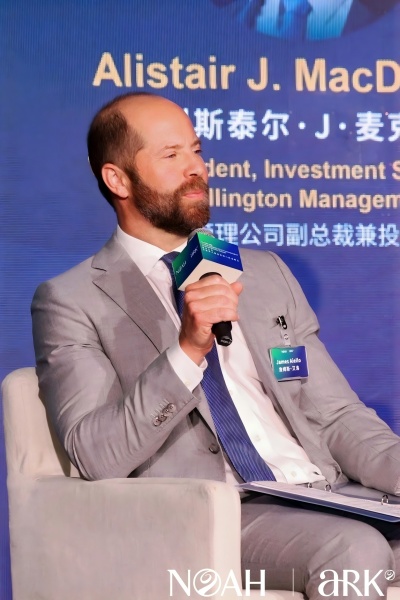
Since the beginning of the second Trump administration, trade wars and tariffs have driven a fundamental shift in global pricing and production structures. US national security and political priorities have taken precedence over globalization, disrupting established divisions of labor and specializations.
As a result, consumers and businesses face higher costs for goods and services, with inflation becoming more persistent and entrenched.
How does this impact financial markets? The most immediate effect is on the interest rate outlook.
The Federal Reserve may initiate a rate-cutting cycle, but this process will not unfold quickly. Even if rate cuts begin, their impact will primarily affect the short end of the yield curve. The long end, however, will be driven more by inflation expectations, which are likely to keep long-term rates elevated as inflation remains stubborn.
Investors evaluating fixed-income products should exercise caution with long-duration bonds, as the period of easily achievable returns has concluded.
Long-Only is No Longer the Only Option
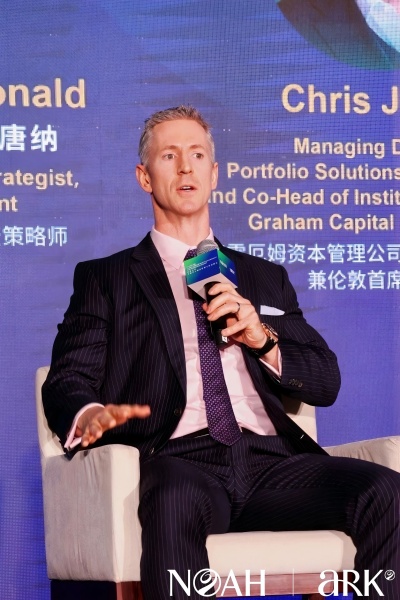
In recent months, some of the US's trading partners, such as the EU, UK, and Japan, have signed agreements that were once considered worst-case scenarios. Surprisingly, some nations are now paying tariffs and framing them as victories. EU finds itself lagging, underscoring the growing importance of global diversification.
When considering Europe, many people might think of Paris or luxury brands like Hermès. However, Europe has emerged as a key arena for long-short strategies and deglobalization opportunities, a shift accelerated by recent US policies under the Trump administration.
For a decade after the global financial crisis, zero interest rates, quantitative easing, and soaring asset prices made long-only investments in assets like real estate, equities, or bonds highly profitable. Markets broadly trended upward. Today, however, the investment landscape has transformed, with shorting opportunities gaining prominence.
Over the past five years, inflation in Western economies has consistently surpassed target levels. Structural increases in interest rates, escalating government spending, and rising market volatility have created a new dynamic. Consequently, long-short strategies now present some of the most compelling opportunities in decades.
Volatility is Here to Stay, Focus on the Present, Not Predictions
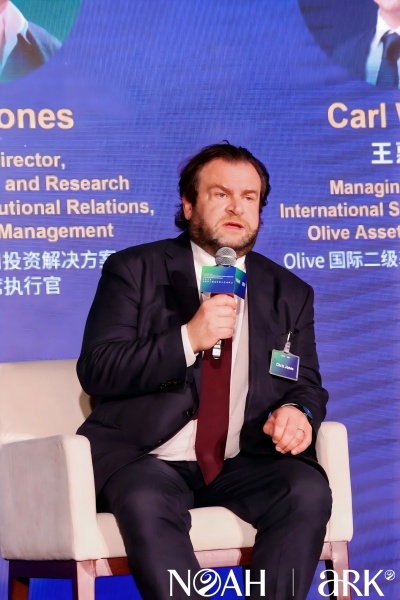
In today's markets, persistent volatility is the only certainty. Attempting to predict market movements three months out based on fundamentals is largely ineffective, as unforeseen events are likely to disrupt portfolio performance in the interim.
Rather than trying to make three-month forecasts, investors should focus on navigating uncertainty by monitoring market sentiment and fundamental trends, adapting flexibly to changes.
Prioritize Tail Risk and Stay Agile
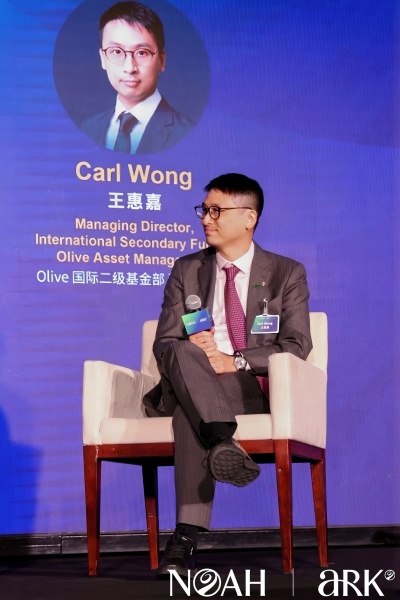
Black swan events occur in financial markets with unexpected frequency, requiring investors to stay alert to potential tail risks, such as geopolitical conflicts involving tactical nuclear weapons or other unanticipated shocks.
This does not imply we should halt investments entirely. Always anticipating the worst-case scenario would hinder effective decision-making. The critical factor is whether asset managers possess the expertise and strategies to withstand and navigate extreme events.
One effective strategy is to operate in highly liquid markets. In today's dynamic environment, widely held assumptions can be overturned rapidly, and market reversals are common. Maintaining agility is essential.
How to Select Exceptional Risk Managers?
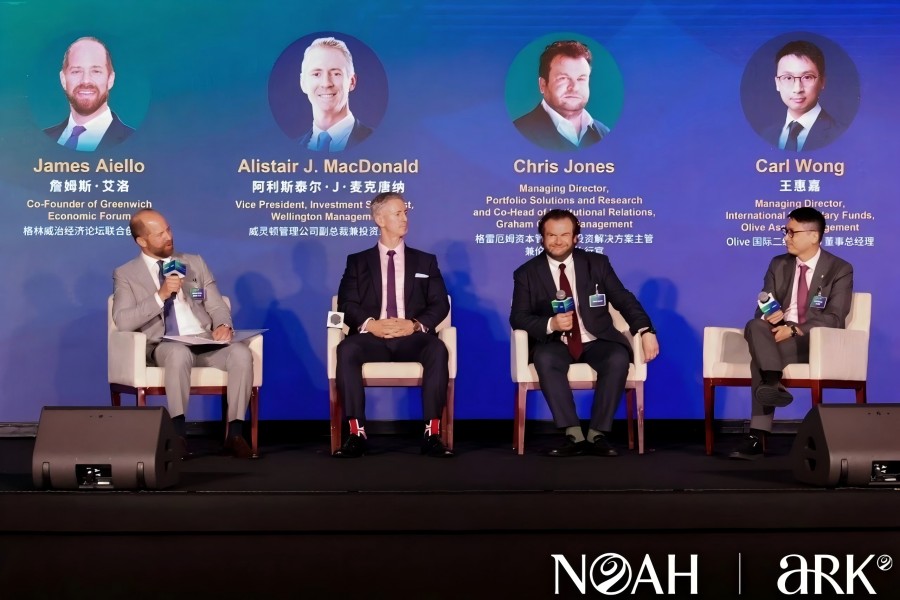
When allocating to asset management teams, consistency is critical. A team's role within a portfolio should remain stable over time. For example, a team responsible for delivering market-neutral risk diversification should not shift to pursuing high-yield strategies the next year.
Investors should apply this principle when evaluating managers, focusing on whether they consistently fulfill their stated roles and responsibilities.
Over the past few years, markets have experienced both bull and bear phases. A strategy that delivers double-digit annualized returns with low volatility across these cycles and demonstrates robust downside protection during challenging periods like 2022, when both US and Chinese equities fell over 20%, is a reliable tool for asset allocation. This is precisely the value that long-short strategies bring in achieving stable returns.











_182052358a184e65886175c58fdf921e.png)
_0f1cc69bebe24f1e9617200ffbfcb4b4.png)
